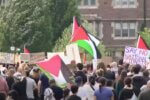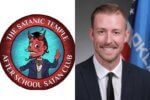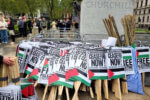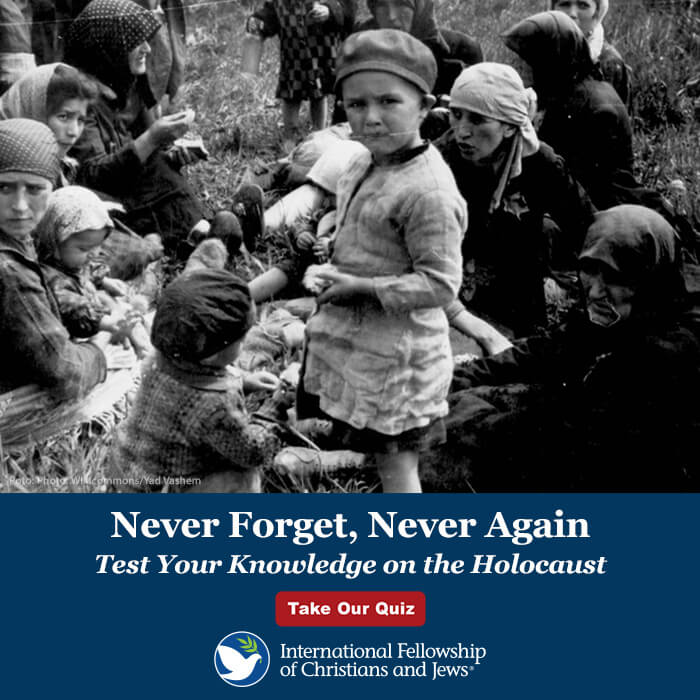Christian ministries today are scrambling to help military personnel who have been traumatized by the stress of combat.
Seated comfortably in our armchairs, we participated in the war. Stateside, however, we were spared the burning smells and the bodies along the road. We watched real-time TV coverage of Operation Iraqi Freedom, squeezing it in between business meetings and the kids’ soccer games.
Marked by street fighting, suicide bombings and a nebulous enemy that dresses as civilians, Operation Iraqi Freedom is bringing public perception of warfare back from a glorified video game to stark, gut-wrenching, face-to-face combat.
The heaviest fighting is over now, but U.S. troops currently in Iraq face prolonged stressful conditions caused by ongoing resistance to the American presence. For many U.S. soldiers living there, the “shock and awe” is just starting to settle in.
In fact, in a war zone anyone is subject to trauma, whether they are engaged in combat or not. Air Force Master Sgt. Robert Morris, 45, witnessed this fact before he returned recently from Saudi Arabia, where he had been stationed for 129 days in charge of 75 troops assigned to support Operation Iraqi Freedom.
“There was fear and uncertainty. It was challenging for some because they didn’t know how long the war would last. People were afraid of being deployed to combat,” he says.
Short though the first three weeks of the war were, U.S. soldiers remain in a perpetually hyperalert state due to the threat of guerrilla attacks, the question of Saddam Hussein’s whereabouts, and the ambiguity of the enemy. This state of mind can cause lasting psychological stress, say experts who study the effects of war on combatants and civilians.
According to the National Center for Post-Traumatic Stress Disorder (NCPTSD), about 30 percent of men and women who were in Vietnam experienced PTSD, and another 20 percent to 25 percent reported a limited struggle with it. Persian Gulf War vets with the disorder are estimated between 5 percent and 8 percent.
PTSD can occur after experiencing or witnessing life-threatening events or violent assaults. The symptoms can be severe and long-lasting enough to significantly impair a person’s daily life.
Marine Corps veteran Joe Vogt of Louisville, Kentucky, still remembers his experience in Vietnam. “When you’re on the edge, all your senses are keyed,” he says. “You become a reactive person. It’s almost like a narcotic because you’re so psyched. … Once you go into that survival [mode], it’s really hard to come out.”
Vogt enlisted at the age of 19–one day after his friend was killed in Vietnam. He says he’s never discussed his war experiences in detail with anybody. He didn’t even believe in PTSD until one night while watching a movie on television a war scene triggered a flood of memories.
“The smells, the sounds, the faces,” he says. “I spent the rest of the night with my head in my wife’s lap, sobbing.”
‘When the Glory Fades’
Since the Vietnam War, psychologists have learned a lot about PTSD (also known as “combat stress”), and the military now takes measures to deal with the psychological fallout of combat. Unlike during the Vietnam War, soldiers today deploy and return in units, and counselors are on the field to help them discuss their experiences during “critical-incident-stress debriefings.”
Increasingly, U.S. Army chaplains are at the forefront of helping soldiers transition back into their everyday lives. The Army recently launched the Deployment Cycle Support program to help soldiers meet the challenges of returning home from a mission. The program is meant to assist soldiers in reuniting with their families, returning to their communities and re-establishing their vocations at a base or in the civilian sector.
“Chaplains are a key component to the reintegration of our soldiers to their lives at home,” Army Chaplain Lt. Col. Glen Bloomstorm said recently in a prepared statement. “Chaplains … live and work right alongside the soldiers, from the front lines to … home base.”
Army Chaplain Mark Perkins served for six months in Iraq with the 123rd Signal Battalion, 3rd Infantry Division, and spent several months in Baghdad before returning home to Columbia, South Carolina, in July. He says the emotional trauma was “very intense” among soldiers because of combat.
“There is a fear of losing one’s life,” he says. “But we had what’s called ‘unicohesion’ in the Army, which is sharing the pain and suffering of caring for one another. The ministry of the chaplaincy is to bring God to soldiers and soldiers to God. We descended into their lives not to judge them, but in an attempt to lift them up with the gospel.”
Morris notes that chaplains were vital to U.S. troops who, at the start of the war, were waiting in Saudi Arabia to be sent to Iraq. The spiritual mood was good, he says, partly because “chaplains had their hands full with plenty of people to minister to.”
“Spiritual strength is amazingly important,” says Steven Cantrell in an e-mail interview from Kirkuk, Iraq. An embedded chaplain for the 2nd Battalion (Airborne) 503rd Infantry, 173rd Airborne Brigade, Cantrell and his unit made a combat jump into northern Iraq on March 26 and later moved into Kirkuk.
“When the [soldiers] worship in combat, pray, study their Bibles and talk to other believers, they are doing things that have great preventive value,” he says.
Indeed, warfare is spiritual because even the best-trained soldier eventually must reconcile the suffering and injustice that cling to the very soul of war. A nation is liberated, yet children are orphaned. The enemy is shattered, yet innocents also suffer.
A soldier may grieve for his friends, his health, his very faith in himself and the world. And if he doesn’t process his experience from a solid foundation of faith and forgiveness, he may withdraw or become ruled for a lifetime by deep feelings of fear, guilt, rage or anger at God.
This presents a huge ministry opportunity for the church, but before we start forming new outreach committees, the Christian community must realize the battle that some of America’s war heroes face after the glory fades.
“Some churches don’t have any understanding of what veterans are all about,” says Larry Haworth, an itinerant minister as national chaplain for Point Man International Ministries, a Christian support organization for veterans. “They may not even realize they have freedom of worship because of veterans.”
By and large, the church has stood behind the troops and has taken seriously the call to prayer by forming 24-7 prayer watches, Internet prayer chains and more.
“Prayers have been answered in mighty ways, but now the church really needs to make a concerted effort to say, ‘We are here for the troops, and we don’t want to just give you a potluck dinner,'” says author and former Point Man Director Chuck Dean of Seattle. One of the first paratroopers deployed in Vietnam in 1965, Dean is now the national chaplain for the 173rd Airborne Brigade Society.
Sponsored by local churches and led by veterans, Point Man has groups called “outposts” in 37 states and six countries. Christian support groups are designed to help vets and their families air their war experiences. “That gave me a lot of comfort to know I wasn’t secretly crazy,” Dean says of his counseling and group sessions. Many veterans want to talk about it only with other vets who have “been there.”
The War Within
According to the NCPTSD, some men and women refuse to seek psychological treatment. They may have legitimate concerns about being labeled with the disorder–worried it may jeopardize their future careers or cast them as mentally ill. Furthermore, traumatized soldiers evacuated from a war zone may see their struggles as a sign of weakness or failure, adding to their feelings of guilt.
“Trauma leaves a lasting imprint of terror, horror and helplessness on the body and the mind,” explains the online NCPTSD Fact Sheet. “People no longer seem trustworthy or dependable. Self-doubt and guilt eat away at your self-esteem. Faith and spirituality are shaken or lost.”
“It’s unnatural for one life to take another,” Haworth says. Soldiers are trained to overcome that inhibition, but the guilt remains after the fact. “The only way to deal with guilt is to accept God’s forgiveness,” he says.
Decorated Vietnam veteran Paul Hughes of Rainbow City, Alabama, is a speaker on veterans’ topics, author and founder of Crosspoint International. Hughes always felt responsible for the death of his comrade who was killed right next to him in battle. “I had just called him over to talk to me,” he says.
The same day in 1969, Hughes was critically wounded, losing an eye and part of a leg. Although Hughes became a Christian in 1974, it took 18 years for him to come to peace with his friend’s death.
Even though he knows God has forgiven him for his past, the former outlaw biker still struggles within. “Every day, I can’t get away from Vietnam,” Hughes says, his voice breaking. “When I look at myself in the mirror and all my scars, it’s so hard to feel like I’m a good person. I feel so ugly inside.”
Soldiers who were Christians before they went to war are not immune from the spiritual battle. Those who believe “bad things don’t happen to good people” may struggle with their concept of God. “The Bible so endorses the fact that to grow and gain wisdom in the Lord you have to face tribulation,” Hughes says.
In order to win the battle within, veterans must wage spiritual warfare, says Dean, who believes demonic forces connected to the pagan gods of foreign lands can be commissioned to torment soldiers mentally and spiritually.
“Know your enemy,” he says, referring to Satan (see Eph. 6:12). Dean’s ministry offers an online reading room and courses at www.namvetbook.com to help men and women break ungodly bonds and empower their Christian walk.
Dean’s popular books Nam Vet: Making Peace With Your Past and After the Ambush help to identify the spiritual weapons God has given to believers, including forgiveness, the name of Jesus, the authority of the believer and the Word of God. His newest book, When the War Is Over, focuses on how PTSD affects relationships. Twice divorced and now remarried, Dean credits his co-author, Bette Nordberg, with providing the necessary and insightful woman’s perspective.
“A person suffering from PTSD doesn’t want to hear that he’s a sinner,” Dean says, explaining that he may already be suffering under a weight of guilt for things he did or failed to do on the battlefield. Dean and Nordberg both agree that Jesus Christ is not surprised by mankind’s capacity for evil.
“There is no relief like exposing your most cruel, or vile, or evil side and finding that you can be fully accepted and loved in spite of your weaknesses,” they write.
“Once you’ve killed somebody, you’re not normal anymore, to the world at large,” says Dean Black, a disabled Vietnam vet who leads a Point Man support group for veterans in Charlotte, North Carolina. “To the world at large, we’re abnormal, but to us, you’re abnormal. We understand each other, and we can never go back to where you are, and I pray to God that you never come where we are.”
Mobilizing to Help
It’s important to realize that not all servicemen and women come home from war traumatized. Many will integrate back into life with little or no major problems. But the impact of trauma is like a hidden enemy that can lie in wait for years until it strikes.
Experienced veterans say love and care from the Christian community can help clean those wounds. It will depend on believers who will:
Act. “Healing is the embrace of the country,” Hughes says. “A lot of therapeutic value of how each veteran received goodness or value or justice will depend on what happens [when they return home].”
There are many ways to show support, from ceremonial tributes (see related story on page 84) to quiet, personal encounters. “Just say, ‘Thank you,'” Hughes says. “That’s happened to me dozens of times, and I would just weep.”
Send a church delegation to meet local troops at the airport when they return home, Black suggests. Flag-waving and parades are not enough to heal deep wounds, but they are an important symbolic gesture and leave a lasting memory of re-entry.
Listen. Many soldiers refuse to discuss their experiences for fear they will be judged or others won’t understand. But eventually the code of silence needs to be broken so healing can begin.
“You can’t be pushy; you have to be loving,” Hughes says. Don’t pretend to understand how they feel, he adds. If someone isn’t ready to talk, giving them information about PTSD may help them evaluate their own feelings and experiences.
Assist. Atonement is an important part of the healing process, Haworth says. Even if a person accepts Jesus’ atonement and is spiritually cleansed, he or she may want to do something good for others in order to find closure.
“[Help them] get involved in community service; help orphanages,” he suggests. “It’s not the same as earning forgiveness. It’s faith with works.”
Include. It’s important that war veterans do not become isolated from society, according to the NCPTSD. Draw them into small groups where they can be accepted and connected.
“The veterans I’m most concerned about are the ones who don’t already attend church,” Cantrell says. In his battalion alone, he reported more than 40 commitments to Christ and many more rededications while in Iraq. But these same people need to be connected with a church when they return home.
“Get to know them,” Cantrell exhorts. “Be gentle with them as the Holy Spirit is often so gentle with the children of God.”
Observe. One in seven U.S. military personnel in Iraq today is female, according to one report. That compares with 7 percent in Operation Desert Storm and less than 1 percent during the Vietnam War.
“Attention is primarily given in a war situation to men in a combat role,” says Marj Graves, Louisville, Kentucky. “I am concerned about [military] women who are mothers and the separation issues they will feel.”
Only four years ago Graves, who was a combat nurse in Vietnam, discovered she was suffering from PTSD. She says women, especially nurses, often see themselves as caregivers and not receivers. She is especially concerned about families in which both parents have been deployed and their children are left in the care of others.
Women’s groups can focus on female veterans and their families and help them with re-entry, she says: “Drop a card, drop a meal, establish a relationship that you care and you want to do something.”
Share. Brett Miller of American Heroes of Freedom (AHF) in Washington, D.C., says many returning troops are not physically prepared for discharge.
“A lot of them will come home to nothing,” he says. “They may get off the plane and get an apple and a salute. They need clothing, health-care supplies, counseling and a way to get back on their feet.”
Miller encourages communities to collect and distribute items for those returning from war. Be prepared for generous giving, he says, noting that after being featured on a Fox News broadcast, AHF was deluged with donations.
AHF is a nonprofit group, formed in 2002 in honor of local and national heroes in the aftermath of 9/11. The group organizes public tributes and plans to build a Freedom Center in Washington that will host research and offer counseling for victims of national tragedies.
The group welcomes volunteers from the area, and Miller says others can call their local Veterans Affairs office, or AHF at 703-256-0869, for help in being connected with returning troops in their area.
Decades after the Vietnam War, Vogt says he doesn’t feel traumatized, though he slept with a knife under his pillow and a loaded shotgun in the bedroom for two years after returning home. Nightmares about booby-trapped children came back to haunt him, and he didn’t like crowds for a while.
But he’s overcome that now, crediting much of his healing to his wife, Jacque. “She took me to the side of the road and showed me where the flowers grow,” he says.
The men and women serving in Iraq each will come home with a unique experience. Some will feel like heroes. Some will feel like failures. Many will feel like both. But one thing is for sure: They will never be the same again.
“That was the one time of my life that I was the best I would ever be,” Vogt says.
If the church reaches out to returning troops with honor and compassion for the difficult duty they performed, today’s soldiers might not become tomorrow’s forgotten casualties.
The Painful Aftermath of War
Any soldier who has experienced combat can tell you about the pain of post-traumatic stress disorder. But few understand its cause.
Tuesday is garbage day. Driving home early from the graveyard shift, Dad rounds the corner, barely noticing the bulging black trash bags lining his neighborhood streets.
In the house, his family is up as usual, but today they’re braced for a fight. Little things always set Dad off on Tuesdays for some reason. He’s edgy and sharp, like a wielded knife.
Eventually, his family realizes the pattern and they decide to stake out the demon behind Dad’s moody Tuesdays. After much thought and prayer, the family links the problem to garbage day and suddenly the truth flashes before Dad’s eyes like a flare of light.
Subconsciously, the bulging black bags remind him of the gruesome body bags he handled when he was a soldier in Vietnam. The realization is the beginning of his healing.
This true account, discussed in the popular book Nam Vet: Making Peace With Your Past exemplifies a trigger–a common reaction for people suffering with post-traumatic stress disorder (PTSD).
Author Chuck Dean of Seattle says a combat veteran may react to triggers in all kinds of ways, from diving for cover at the sound of a backfiring car to sabotaging his own relationships to protect himself from losing another friend.
PTSD is a coping mechanism the brain uses to try to deal with the stress of a traumatic event. Simply put, the body’s normal adrenaline fight-or-flight response rises to a “superstress” reaction, remaining overactive long after the danger is over.
Although victims of natural disasters, accidents or violent crimes often experience PTSD symptoms, servicemen and servicewomen activated to a war zone are prime candidates for PTSD because of their ongoing exposure to violence, fear and death, as well as their prolonged hyperalert state of mind during warfare.
Physical symptoms cover a broad range. Psychological effects can include nightmares, flashbacks, rage, depression or even memory loss. Symptoms may be treatable with medication and other means, but until the issues behind the stress are rooted out, true healing cannot occur, experts say. Attempts to avoid reminders of the trauma only drive it deeper into the psyche.
“God didn’t create us to have amnesia,” Dean says. “The idea is to take the poison out of the memories so they don’t make us react in a negative way.”
Although therapy is available both on and off the battlefield, many returning vets won’t consciously realize the personal impact of war for months or even years after discharge, according to studies on PTSD. By that time, drug addiction, domestic violence, divorce or suicide may result.
Reports of four military wives allegedly murdered by their husbands within a six-week period in 2002 shocked the nation. Three of the four men based at Fort Bragg, North Carolina, had recently served in Afghanistan, and two who were special operations soldiers subsequently committed suicide–a twist that raised concerns about the effects of war deployment on troops and their family relationships.
Honoring the Heroes
Soldiers don’t always find a safe haven in church, but some congregations today are working to change that.
The chop-chop-chop of a helicopter is momentarily drowned out by the sound of an explosion in the overwhelming darkness. Men and women are absorbed in the sights, sounds and smells of war.
This time the war theater isn’t real. It’s the annual Memorial Day ceremony at Calvary Temple in Yuba City, California–known as the largest gathering of veterans on the West Coast. About 2,600 people attended in 2002, according to Calvary Temple pastor Michael Ciociola.
A Grateful Nation Remembers–the ceremony intended to be a tribute of thanks–has also become an instrument of healing. The sound of people weeping cuts to the heart as dramas and authentic re-enactments bring the audience into the world of war. Scenes depicting everything from a Vietnam field hospital to New York firefighters raising the American flag at the site of the fallen Twin Towers evoke hidden feelings and memories.
“Until you open up the wound and clean it, it can’t begin to heal,” Ciociola says.
The church takes pains to ensure that every detail of the ceremony is an honor and not an affront to those who served at war.
“[Veterans] don’t want anything to be fake or cheap or cheesy,” Ciociola says.
After a presentation of the gospel and time for ministry, the event is topped off with a lighthearted United Service Organizations (USO) show for an upbeat ending.
Military people don’t always find a safe place in Christian churches, partly because they are transferred so often, Ciociola notes. “Most churches, for some reason, have not paid much attention to this segment of the culture,” he adds.
Vietnam veteran Paul Hughes, founder of Crossfire International in Rainbow City, Alabama, has attended almost all the 11 annual events and has spoken at many of them.
“It’s breathtaking,” he says. “You’re so overwhelmed with thank you that you can’t help being healed.”
Not all churches can offer such an elaborate tribute, but Calvary Temple, which had small beginnings, is preparing to share its equipment and resources with other churches in the region for their use.
“Even doing something on a small scale can bring in a veteran,” Ciociola observes.
The church also has a veterans group that meets throughout the year. When 14 military members of their congregation were deployed to Iraq this year, the congregation made a “videogram” for each of them, including personal messages and a view of their flag-waving, cheering church family.
American Military Ministries
Nam Vet
Chuck Dean
206-762-0648
[email protected]
www.namvetbook.com
Point Man International Ministries
Dana Morgan
P.O. Box 267
Spring Brook, NY 14140
800-877-VETS
www.geocities.com/~pointmen
Crossfire International
Paul Hughes
P.O. Box 7187
Rainbow City, AL 35906
800-246-1481
www.crossfireintl.com
National Center for Post-Traumatic
Stress Disorder
PTSD Info Line: 802-296-6300
www.ncptsd.org
U.S. Army Chaplain Corps
Deployment Cycle Support
www.chapnet.army.mil
A Grateful Nation Remembers
Michael Ciociola
Calvary Temple
2620 Colusa Highway
Yuba City, CA 95993
530-673-6035
[email protected]
America’s Heroes of Freedom
Brett Miller
P.O. Box 18984
Washington, D.C. 20036-18984
703-256-0869
[email protected]
www.americasheroes.us
Anahid Schweikert is a freelance writer and frequent contributor to Charisma. She lives near Memphis, Tennessee, with her husband and two young daughters.







Leave a Comment
You must be logged in to post a comment.